This post may contain affiliate links. If you make a purchase through a link, I may receive a small commission, at no cost to you. These commissions help keep this website up and running, and I thank you for your support. Read my full disclosure here.
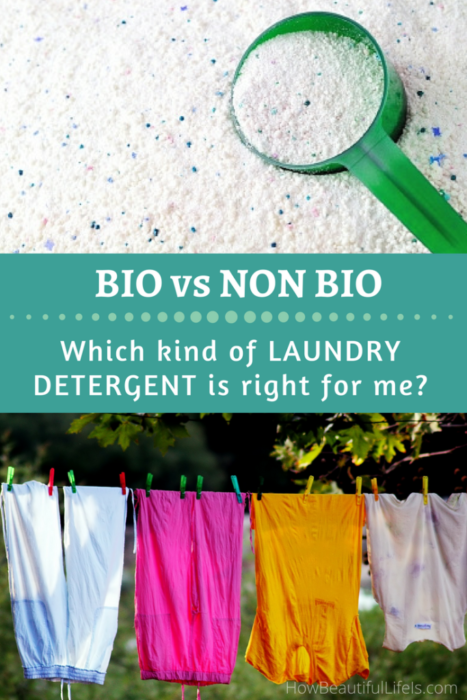
Disclaimers: I have in no way been influenced or paid to endorse these products. All recommendations are my own.
I recently purchased a product that proudly claimed it was “free of enzymes”. To me, that sounded ‘safer’, so I decided it was worth trying. However, after a while I noticed that my white sheets were looking decidedly dingy and grey. Was this because of the missing enzymes? Or had I just chosen a poor performing product? This led me to investigate further to try and understand the bio versus non-bio debate.
In the UK and Ireland, laundry detergents are labelled under ‘bio’ or ‘non-bio’ (bio is short for biological). As most countries don’t label their detergents in this manner, you will need to check the ingredients listing. Most biological detergents are labelled as containing ‘enzymes’, but some actually list the enzyme type. If you are unsure, consult the manufacturer’s website or contact them directly.
Biological Laundry Detergent
What Is a Biological Laundry Detergent?
Biological detergents contain a variety of active enzymes. When the stain is combined with its matching enzyme, it acts as a key, becoming unlocked and breaking up. Only a small amount of enzymes are needed in detergent because the enzymes can keep doing this action over and over again during a wash cycle.
Bio detergents may include some or all of the following enzymes:
- Amylase – to remove starch and carbohydrates e.g. potato, chocolate, gravy.
- Protease – to remove protein based stains e.g. egg, blood, faecal matter, sweat. Protein is one of the hardest stains to remove (as I’m sure many of you can attest to).
- Lipase & Mannanase – to remove fatty, greasy stains e.g. oils, sauces, cosmetics.
- Pectinase – to remove fruit and pectin-based stains e.g. fruit juice, jam.
- Cellulase – prohibits soils from binding and assists its removal when used in conjunction with the other enzymes above. It also reduces pilling.
These enzymes are biodegradable and non-toxic to plants and animals. The use of enzymes in detergents also reduces the need for surfactants. Surfactants are used in detergents to help loosen grime and keep dirt suspended in the water, but they are harmful to the environment because they are mined, produced mostly from petrochemicals using high energy processes and do not biodegrade. If the product contains 1-2% of enzymes, it can reduce the amount of surfactants needed by 10 times.
Enzymes are good at breaking down and removing protein stains from your fabrics. But materials made from animal derived products such as silk and wool are also made of proteins. Unfortunately, enzymes can not differentiate between an egg stain and wool, so they eat away at it, breaking down the fibres and creating small, randomly placed holes. They won’t appear after the first wash (so if you’ve accidentally forgotten to separate those wool socks it should be ok), but, after several washes you will begin to notice them develop. I have experienced this problem first hand (ok, I admit it, I didn’t follow the advice on the label). I had no idea how this was happening and thought it must have been caused by moths, even though I could never find any evidence of them. You can read more about this in my post What’s Causing Holes in My Wool’s?…and How to Prevent It.
On the other hand, cotton and linens are cellulose based because they come from plants. Consequently, they are not affected by these enzymes and can be safely washed in biological detergent.
Popular biological laundry detergents:
- Liquid Tide Plus Bleach Alternative HE Laundry Detergent
- Seventh Generation Concentrated Laundry Detergent

What Is the Best Water Temperature to Use with Biological Laundry Detergent?
Some biological detergents do not work at very low or very high temperatures. If the water is too cold, the rate of enzyme reaction is too slow for it to effectively clean. Conversely, if the water is too hot, the enzymes will stop working (‘denature’). Therefore, they work best at moderate temperatures from 30ºC to 50ºC (86ºF to 122ºF). It may be helpful to know that because these detergents contain enzymes that break down grease and oil, you do not need to rely on hot water to remove these types of stains.
Some products have been developed to cope with even more varied water temperature from 20ºC to 95ºC (68ºF to 203ºF). This will be advantageous if you prefer cold water washing, or, for those of you that need to wash at high temperatures for sanitary reasons. Check the label to ensure that you choose the right product for your water temperature preference. Be aware that some companies genetically modify their enzymes in order to get them to work below 30ºC (86ºF).
Non-Biological Laundry Detergent
What Is Non-Biological Laundry Detergent?
Non-bio laundry detergents do not contain enzymes. Consequently they are not as effective at removing stains such as oil and egg, which is why many manufacturers do not produce non-bio products.
Because of its limited effectiveness on tough stains, other chemicals such as soap, oxygen bleaches, optical brighteners and high levels of surfactants are usually added to improve performance. This makes them unsafe for washing silk and wool.
Popular non-biological laundry detergents:
What Is the Best Water Temperature to Use with Non-Biological Laundry Detergent?
Non-biological detergents do not wash effectively at lower temperatures, so you will need to use higher water temperatures to assist the detergent to breakdown and remove the stains. Therefore, they are not suitable for people whose washing machines don’t have access to hot water, or for those of you wanting to reduce your energy usage. Some non-bio detergents are designed to be used as low as 30ºC (86ºF), but always check the label to be sure.
Advice when using non-bio detergents:
- To effectively remove oil and grease stains using non-bio detergents, you will need to ensure that you wash with hot water. However, be aware that protein stains like blood can become ‘set’ in hot water.
- Always check your clothing labels for washing instructions as hot water can fade some coloured fabrics faster.
Effect of Biological and Non-Biological Laundry Detergents on Washing Machines
Bio Detergents
The enzymes in bio detergents actually help to keep your machine clean. However, if you are washing at lower temperatures, you can still get product build up. You also need to consider sanitising the machine because washing at temperatures lower than 60ºC (140ºF) does not kill the bacteria and mildew that can grow.
Non-Bio Detergents
The ingredients in non-bio detergents, especially liquids, can cause a soapy sludge to build up on the inside of your machines drum (it can be hard to see unless you peel back the rubber edge and peer in, using a torch to help you see). Also, unless you are washing above 60C (140ºF), you can have issues with bacteria and mildew.
How to Keep Your Washing Machine Clean
To keep your machine clean, sanitised, and smelling fresh, run a hot wash of at least 60ºC (140ºF) but preferably 90ºC (194ºF), once a month with some bio detergent as well as oxygen bleach. The hot water and enzymes help to break down the greasy, soapy residue. The hot water alongside the oxygen bleach works to sanitise the machine. Alternately, you can purchase a specialised product that will keep your machine clean and odour free like Clorox Washing Machine Cleaner, and, for those of you with hard water, remove limescale. It works great with both HE and top-loading machines.
Tips:
- Some bio detergents like Liquid Tide Plus Bleach Alternative HE Laundry Detergent already contain oxygen bleach, negating your need to add it separately, so check the ingredients.
- Washing machines are designed to rise to the temperature as the wash progresses, so this should give the enzymes enough time to do their work without being affected by the heat.
Effect of Biological and Non-Biological Laundry Detergent on Sensitive Skin
In early biological detergents, Proteolytic enzymes (the protein eating ones) caused irritation. This was due to their dusty consistency, which made them easily airborne. This issue was resolved by encapsulating these enzymes in a barrier. However, the stigma surrounding enzyme detergent has remained, creating the market demand for non-bio products that we see today.
In 2008, an article published in the British Journal of Dermatology¹ reviewed the scientific literature measuring the effect of exposure to enzymes. It found no evidence that enzymes caused adverse skin reactions and concluded that doctors should not assume that skin irritations have been caused by enzymes. Instead, they recommended that they be further investigated to establish the actual cause.
The suggestion that enzymes cause adverse skin reactions is unique to the UK, which is why they label their products as bio and non-bio.
Laundry Detergent Recommendations for Sensitive Skin
What Might be The Cause of Skin Irritation?
Despite the research indicating a very low risk of an adverse reaction to enzymes, we know that some people do report sensitivities to laundry detergents. But it’s not just the bio products that receive these complaints, so do non-bio products. So what might be the cause of these skin irritations?
Both bio and non-bio laundry detergents contain a number of potentially irritating chemicals that can cause sensitivities. Some of these reported reactions may be due to:
- Surfactants, bleaching agents or optical brighteners.
- The use of too much laundry detergent which can cause a build up on clothing and lead to skin irritation.
- The use of laundry softeners. Even if you don’t use separate softener products, some detergents contain them.
- The fragrances used in detergents.
Possible solutions:
- If you do not have a full load, it’s only lightly soiled or you have a small sized washing machine, then reduce the amount of detergent you use. The directions on the detergent label typically refer to a full load of heavily soiled laundry in a family sized machine.
- Modern water efficient washing machines often don’t thoroughly rinse the product out of your fabrics. You may need to put your clothes through an extra rinse cycle to get as much of the detergent out as possible. Some machines have cycle options that will carry out an extra rinse, so consult your machines manual (if you have lost the manual, you can usually find it on the manufacturer’s website).
- Use a cup of white vinegar as a safer alternative to softener.
- Look for products with low or no fragrance.
- Consider getting an allergy skin test to see what component/s of the detergent is actually causing the reaction.
- Choose the water temperature most suitable for your product.
- Add the quantity of washing detergent according to your water hardness, how soiled your laundry is, load size and machine size.
- Those that experience detergent sensitivities should consult a specialist to identify the cause so that they can make an informed decision when choosing their detergent.
- Ensure that the detergent is thoroughly rinsed out.
- Maintain the cleanliness of your washing machine to ensure hygienic efficient cleaning.
Bio Detergents for Sensitive Skin
For a bio detergent that uses a range of enzymes but is free of perfumes, optical brighteners, dyes and perfumes, try Seventh Generations Free and Clear range of laundry detergents. They do contain SLS’s (Sodium Lauryl Sulfate) which can irritate skin but has not been shown to cause cancer. They do not contain SLES (Sodium Laureth Sulfate), which can irritate skin and is also a known carcinogen.

Source: Carolyn CC BY:ND via Flickr
Non-Bio Detergents for Sensitive Skin
For a non-bio detergent that is free of perfumes, optical brighteners, dyes, SLS and parabens, try Rockin Green Classic Rock Laundry Detergent.

Source: Iain Cuthbertson CC: BY-SA via Flickr
So Which Kind of Laundry Detergent is Right for Me?
| Biological Detergent | Non-Biological Detergent |
| Contains enzymes that remove dirt and stains
Not suitable for wool, silk and delicates Suitable for cold through to hot water washing |
Does not contain enzymes, instead, uses a range of other chemicals and hot water to remove dirt and stains
Not suitable for wool, silk and delicates Suitable for warm to hot water washing only |
- As with all chemicals, carefully read and follow the instructions for usage.
- To ensure the best outcome for your fabrics, follow the cleaning instructions as directed on the label.
Reference
¹Basketter DA, English JSC, Wakelin SH, White IR. Enzymes, detergents and skin: facts and fantasies. Br J Dermatol 2008; 158:1177–1181






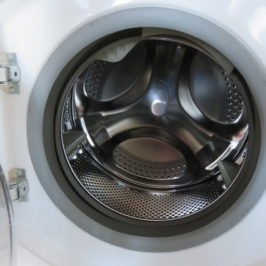
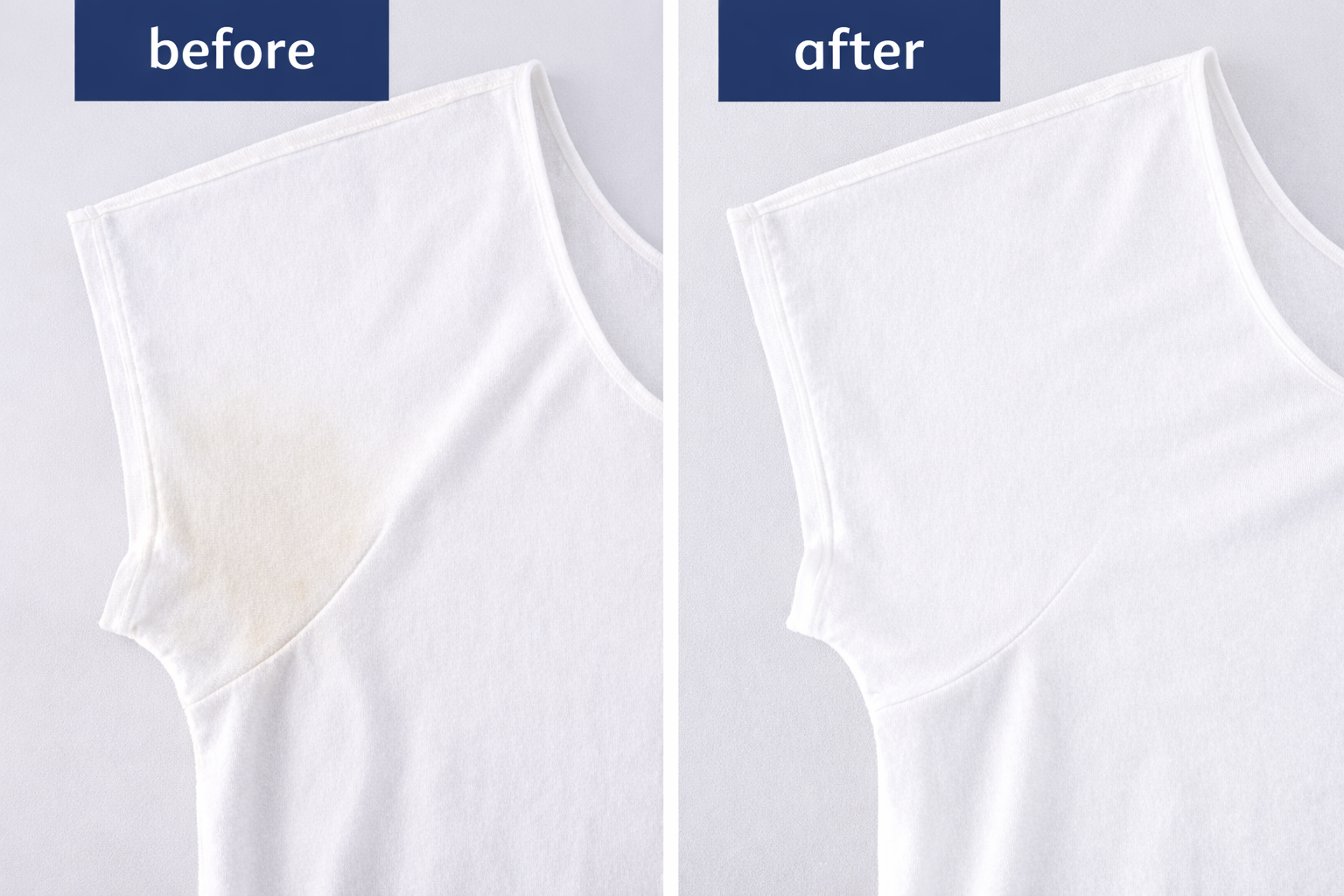
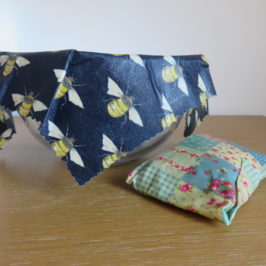
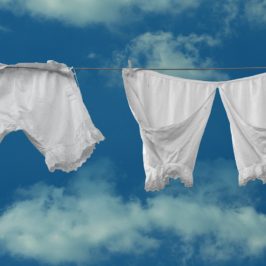

Moth Prevention
This is an amazing post, very helpful for selecting laundry detergent that works for you!